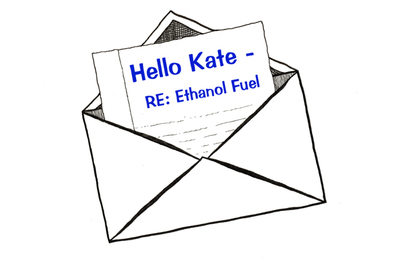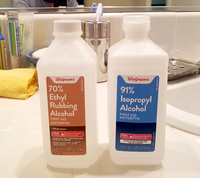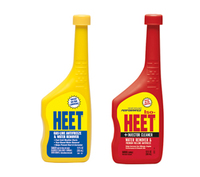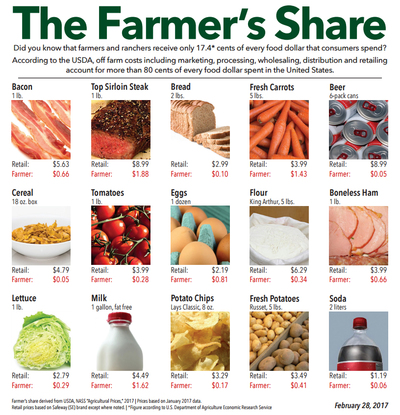Open Letter to Kate McAlpine and Michigan Engineer News Center on Ethanol Fuel
 |
By Marc J. Rauch
Author of THE ETHANOL PAPERS
Exec. Vice President/Co-Publisher
THE AUTO CHANNEL
 Marc Rauch |
Hello Kate:
I just read a Twitter message about your May 8, 2020 article on the Michigan Engineer News Center website titled "We're Doing Ethanol Wrong."
The message was left for me on a little used Twitter page that's associated with my company (The Auto Channel). Since my business partner and I are very strong advocates for ethanol fuel, I presume the message was sent to us by a reader in order to elicit our thoughts on the anti-ethanol information that your article presents. As I'm always happy to see what new challenge has been invented to demean ethanol, I gladly read your article. With this in mind, I'm writing to you directly.
 Kate McAlpine |
Your article states an enormous amount of incorrect information. It's incorrect in that the information is either an outright lie, a gross exaggeration, out of date, or out of context. I will provide some examples in a moment along with links to sources where you can find greater details, should you have the desire to learn the truth.
I get the sense that you don't really have any personal knowledge of the issues related to ethanol fuels, and that you merely put together a story that incorporates comments made by other people who (generally speaking) have no first hand, hands-on experience using or testing ethanol fuels. This is not uncommon. In fact, I have never actually encountered a published ethanol-hating professor, journalist, or engineer who has had real world experience with ethanol. They write a story about it, but they know little or nothing about subject. They may have gotten paid by an oil industry-related entity to write and publish the information (usually info that's provided by the oil industry-entity), but they never took the time to verify the information.
I'll start with the four very common myths about ethanol that are included in your very first paragraph:
-
"It can damage small engines and older cars. It reduces gas mileage. It doesn’t store well. It competes with food."
• Ethanol does not damage small engines and older cars. Ethanol is compatible with more types of rubber, plastics, and metal than gasoline and aromatics (aromatics are some of the ingredients
contained in all gasoline). By the way, in your article you refer to "pure gasoline" but there is no such thing as "pure gasoline;" any gasoline is a mixture of many ingredients
that can change almost at will, including some very toxic corrosion inhibitors. My full report of ethanol use in small engines is:
• Regarding older cars: Ethanol blends were successfully used in Great Britain and other countries in Europe for many decades (from the earliest years of automobiles through the 1970's).
One of the primary marketers of the ethanol-gasoline blends (known as Power Alcohol) was Standard Oil and their offshoot Esso, you should know them as the largest oil company in the world. Another
very large marketer at the time was Cities Service, aka Citgo. They promoted Power Alcohol as being safer, cleaner, healthier, more powerful, and more economical than gasoline that did not contain
any ethanol (E0). This fuel was available to be used in virtually all of the European cars that we now think of as being "classics" and "antiques." There is little or no reporting in
European newspapers or magazines from those days that blame ethanol for any of the problems encountered by internal combustion engines. However, there are published editorial reports from those days that
extol the benefits of using ethanol-gasoline blends. If ethanol-gasoline blends did not hurt the cars on the road in Britain and Europe in the 1940's, for instance, then any vehicle from that time
that is still on the road today will not be hurt by ethanol-gasoline blends. My full report on this is:
On this same subject, Brazil has been mandating ethanol-gasoline blends since 1978. They started with E15; the ethanol level continued to climb, and for the past few years their minimum mandated
fuel is E27. Brazil has nearly all the same cars that we have in the U.S., in Europe, and Asia. Most of the cars on the road in Brazil were manufactured outside of Brazil using the exact same parts
and accessories as the vehicles sold in the U.S., Europe, and Asia. You can buy a brand new Ford in Brazil or you can buy a used Ford in Brazil, they both must use at least E27 fuel. The vehicles in
Brazil do not suffer from any greater damage or wear-and-tear than the comparable vehicles in the U.S. or Europe. If a 1980 Ford Mustang can safely and efficiently use E15 or E27 while cruising the
streets of Rio de Janeiro, then it can safely and efficiently use E15 or E27 on the streets of any city in America. My report on this issue is:
• Regarding fuel mileage issues: The typical spark-ignited internal combustion engine (ICE) is designed and built to optimize the characteristics of gasoline fuel. The typical compression-ignited internal combustion engine (diesel engine) is designed and built to optimize the characteristics of petroleum diesel fuel. There is no magic to this, nor do the performances of either type engine rely on any special attributes of their respective fuels. The same spark-ignited internal combustion engine optimized to run on ethanol will produce MPG results that are equal to or better than the gasoline version. A compression-ignited diesel engine will produce the same MPG results when running on bio-diesel fuel (ethanol can be used to produce bio-diesel fuel), and it requires no change in optimization. These results are despite the fact that E0 gasoline has a higher BTU rating (energy content) than ethanol, and despite the fact that petrol diesel has a higher BTU rating than bio-diesel.
In addition, certain mid-level ethanol-gasoline blends (generally E30 to as high as E50) can produce better MPG performance than E0 or E10 in a gasoline-optimized engine, without any modifications done
to the engine. What's more, the ethanol-gasoline blends always cost less than E0, and higher ethanol level blends (such as E30-E50 will always cost less than E10). This means that the driver benefits
by saving money on each gallon of fuel, and in certain situations will also benefit by getting better MPG performance from the mid-level ethanol-gasoline blends. Although this information was obviously not shared with you,
it has been widely known for more than 120 years. A couple of my reports on this issue are:
-
The Irrelevance Of BTU Rating - Big Oil's Gimmick To Hoodwink The Public
The Irrelevance Of BTU Rating - Revisited
 |
• Regarding the shelf-life of ethanol: Ethanol virtually never goes bad. The simplest way to prove this is via the alcohol that almost everyone has in their home, namely rubbing alcohol and distilled alcoholic beverages (there is a big difference between distilled and fermented alcoholic beverages). Rubbing alcohol can be purchased in two forms: ethanol-based and isopropyl-based. You can have bottles of either in your home for years and they never lose potency and they retain their excellent antiseptic qualities. You can have a bottle of scotch, rum, gin, vodka, brandy, bourbon, rye, or schnapps sitting on your liquor shelf for years and it stays exactly the same, and it tastes exactly the same. It is possible for something foreign to be mixed into the alcohol bottle (accidentally or intentionally), and that foreign substance might go "bad," but it is not because of the ethanol - ethanol is a preservative. The foreign substance could include some type of dairy product or a bug.
Gasoline, on the other hand does go bad. It can happen in just a few weeks or a couple of months. If a quantity of ethanol-gasoline blend goes bad it is because of the gasoline, not the ethanol. If
denatured alcohol goes bad it is because of the ingredient added to denaturize the ethanol (the ingredient is typically gasoline or some other petroleum distillate). This has always been known, and it
is why there are several aftermarket products that are commonly added to the fuel tanks of engines that will be sitting idle for extended periods of time. The concern over limited shelf-life is a problem
of gasoline. Two external reports on this are:
 |
One of my personal reports on this issue is contained within my criticisms of widely used aftermarket engine treatment products, such as those manufactured by a company called GOLD EAGLE.
They manufacture two versions of the same basic product: HEET and ISO-HEET. The key ingredients in the two products are alcohols (methanol in HEET and isopropanol in ISO-HEET).
The primary difference between these two alcohols and ethanol is that ethanol is not as corrosive as methanol and isopropanol, and you can drink ethanol in its pure state (not
denaturized). You can't drink methanol or isopropanol, they will kill you. If you tried to drink gasoline and aromatics it will also kill you. By the way, methanol and isopropanol
are not as corrosive as gasoline and aromatics... and if you didn't know, all liquids are corrosive. This includes an extremely corrosive liquid that we all come in contact with
multiple times per day: Water. My report is:
As my report lays out, GOLD EAGLE emphatically states that its HEET products will not damage engines or its parts...they offer a satisfaction guarantee to support the statements.
They also state that :
-
"HEET products do not expire. Unopened bottles of HEET and ISO-HEET have an indefinite shelf life provided the foil safety seal has not been broken."
This means that the alcohols contained in the HEET bottles do not go bad; something that's added to the alcohol in the HEET products might go bad.
• Regarding the food vs fuel argument: This argument is a complete canard. In 2007, the claim was made by the oil industry and its paid followers to denounce ethanol. The claim really took off in 2008, after the World Bank published an (erroneous) report that claimed ethanol production caused corn prices and food prices to soar.
In 2009, the report "Biofuels versus food production: Does biofuels production increase food prices?" was published by Amela Ajanovic, a Senior Researcher and Lecturer at the
Institute of Energy Systems and Electrical Drives at Vienna University of Technology. The report found that ethanol fuel production was not the cause for rising food prices. The report stated
that the culprit causing corn and food prices to rise was, in fact, crude oil prices and commodity speculators. Ms. Ajanovic's report can be found at:
In 2010, two years after the World Bank made their claim against ethanol they retracted the story and laid the blame of soaring corn and food prices where they should have: On the enormous
increases of crude oil prices along with the corresponding spike in gasoline and diesel fuel prices. Not only did the skyrocketing price of oil cause the petroleum-based fuels to rise, the cost
of plastic packaging and printing (both of which rely on petroleum oil) soared. This is what caused food prices to rise so dramatically. Since that time, the World Bank has reiterated the
retraction at least twice. There was another player that affected the price of corn that was not caused by demand for the crop for fuel, and that player was commodity speculators. The two World Bank
retraction reports can be downloaded through the following links:
An external report published on Forbes.com in 2013 agrees with the World Bank's re-assessment of food prices; this is it:
There's also this 2016 report that corroborates the fact that corn ethanol does not threaten the food supply:
Kate, here's some perspective: In a $4.00 box of breakfast corn flakes there is about a nickel's worth of corn. Even if the price of corn doubled, the 10 cents worth of corn would have
minimal effect on the price of the box. The following graphic gives a great illustration of how much "farm product" is used in different food items versus the retail price of those items:
The amount of corn used in very recent times for ethanol fuel (not counting the Covid-19 period) is vastly higher than it was 10, 15, 20 years ago. However, the total volume of corn crops has also sharply risen, and the amount of corn designated for ethanol fuel use is only about the same proportionate amount that it was 10, 15, 20 years ago. Therefore, there has been no food shortage due to the use of corn for ethanol. There are no reports of Americans not being able to buy as much corn flakes, corn chips, corn tortillas, popcorn, corn-on-the-cob, and canned corn as they want.
Furthermore, the remnant of the corn used to make ethanol fuel is often used as high protein feed for livestock that are consequently eaten by humans. The result is not fuel instead of food, it is more fuel and more food.
One last citation on the Food vs Fuel issue: Way back in 2007, my website TheAutoChannel.com, posted a video on YouTube that explained away the bogus Food vs Fuel canard before the issue got hot and the World Bank 'Food vs Fuel' hysteria went viral. The significance of my hammering on this point is that this was never a legitimate issue, and here you are, more than a decade after the World Bank retracted the claim, still publishing a new story as if the issue was ever accurate and of vital concern. Here's the 2007 video:
Kate, as encapsulated in your article's headline and sub-headline, the primary premise of your article is that we're going about producing and using ethanol fuel all wrong. To try to make this point, you utilize fallacious information, as I have already shown, and then commentary from different people to (unwittingly) spin your article's anti-ethanol rhetoric completely out of context. The main three people you refer to are Margaret Wooldridge (a professor of Mechanical Engineering at University of Michigan), André Boehman (a professor of Mechanical Engineering and Director of the W.E. Lay Automotive Laboratory - also attached to University of Michigan), and yet another UofM professor, John M. DeCicco (a research professor for the school's Energy Institute). To the casual observer, if these three people were baseball players and a pitcher had to face all three in the same inning, the pitcher would think he was up against the famed "Murderers Row."
I was already familiar with Professors DeCicco and Boehman, and I'm guessing that almost all of the fallacious information about ethanol that appears in your article comes from them. I make this guess because I had the opportunity to study and respond to them both shortly after they published their terribly wrong stories about ethanol. The unfortunate aspect of you relying on their work is that if they provided you with this wrong information just prior to the time you wrote your article, then it means they knowingly passed false information to you.
In August 2016, I wrote and published a rebuke of multiple anti-ethanol articles that had been recently published. One of those articles was co-authored by John DeCicco; this is the one you
wrote about...you know the one that was made possible because of the financial support of the American Petroleum Institute. The API sponsorship alone should have caused you to ignore Professor
DeCicco's work. In any event, you can read my complete response at:
In addition to John DeCicco's co-authored story being incorrect on direct facts about ethanol, he makes an error in judgment by assigning irrelevant secondary data to the overall conclusion. He does this by attaching items such as "the emissions from fermenting the cornstarch into ethanol" to the emissions from burning ethanol in his overall calculations. In the first place, ethanol produces very, very little harmful emissions; so little in fact, that you can burn ethanol in a closed room for heating, cooking, and/or lighting without any risk. In the second place, DeCicco and his team act as if there are no ancillary factors when calculating the harmful emissions caused by petroleum based fuels and the petroleum industry. Petroleum oil fuel production also requires energy...lots and lots of energy to find it, pull out of the ground, ship it over long distances, refine it, and ship it over long distances again.
Moreover, enormous energy must be expended to fight all the wars that we've been involved with because of oil over the past 106 years. Building all the aircraft, naval war ships, tanks, armored vehicles, rifles, bazookas, mortars, cannons, missiles, bombs, bullets, uniforms, troop housing facilities, etc., etc., etc., required enormous amounts of energy.
And then, there's the cost of lives...hundreds and hundreds of thousands of American lives lost fighting over some other country's oil. By comparison, no American soldier, sailor, marine, or airman has ever died fighting to defend ethanol fuel production and distribution.
In March 2019, I wrote and published a rebuttal to Professor Boehman, and we then had a brief email exchange. You can read all of it at:
In the time since my rebuttal of Professor DeCicco in 2016, and then my rebuttal and exchange with Professor Boehman in the Spring of 2019, some additional reports have become available
that verify ethanol's environmental benefits. Here's three:
-
The Greenhouse Gas Benefits Of Corn Ethanol – Assessing Recent Evidence
Greenhouse Gas Emissions: Myths versus Facts
Innovation is Driving Down Greenhouse Gas Emissions from Corn-based Ethanol
 Margaret Wooldridge |
I was not familiar with Margaret Wooldridge ("Ms Wool," as she seems to be known at U of M). Her academic credentials, honors, and awards are through the roof. Perhaps she would be the Babe Ruth of the Murderers Row analogy I used a few paragraph above. The word "impressive" doesn't do justice to what she has accomplished. And on top of all this, Kate, you quote Professor Wooldridge as saying "I love the fuel," when talking about ethanol. Oh man, what could possibly be better than having a supremely accomplished, tenured professor of engineering love ethanol fuel?
Nothing should be wrong with it, but something is wrong. What's wrong is that you are using Professor Wooldridge's appreciation for ethanol in a negative way, a way that sets up the (empty) premise of your article.
Taking into account everything I presented above, along with the content and links contained within the reports I cited, it is clear that there are no negatives to ethanol fuel (other than some wild unrealistic wish that its use would also cure cancer). All negative claims about ethanol fuel, be they mechanical related, environment related, or economic related, are false.
While it would be fabulous if all new spark-ignited internal combustion engines were optimized to run on E100 (or something close to that), the very next best thing would be to simply mandate E30 or E40 as the nation's basic regular fuel because all spark-ignited internal combustion engine vehicles, regardless of age and regardless of whether they are "flex fuel" or not, can use it and seem to run better on these mid-level blends. These blends would provide immediate GHG improvement without requiring any mechanical alteration whatsoever.
And guess what else, Kate... Considering "catastrophic man-made climate change" worries, the immediate switch to E30/E40 would go a long way in saving our planet until truly safe and clean electric vehicles can replace all ICE vehicles 50 or 100 years from now.
Therefore, the only way that you or any one else could sustain an argument that "we're not doing ethanol the right way" is to bring forth the issue of cellulosic ethanol. However, It's entirely irrelevant if cellulosic ethanol has not made its entrance onto the main stage, so to speak, as it's not needed.
To any claim that the creators of the RFS Program had imagined that we would be relying on cellulosic ethanol at this point, I have two words for the claimants: "So What?"
Corn-based ethanol is already less expensive than gasoline; it's already cleaner, and safer, and healthier than gasoline. We have very competent farmers and distillers who know how to grow the crops and make the fuel; and they are entirely capable of filling all current demand. It might be a different story if our nation was fuel starved; if our economy was crippled by the lack of engine fuel; and our only salvation was cellulosic ethanol, but that's not the case. Get over it!
Additionally, if American farmers couldn't grow enough corn to produce enough ethanol to meet the demand, there are several other perfectly good higher-yielding crops that could be used. And then there's seaweed and algae, which not only don't require any water or fertilizers; their ethanol yield could be up to 100 times more per annum than corn. So, again, the matter of cellulosic ethanol is irrelevant. I recognize that your article, Kate, includes the promise of algae, and that's good. But it doesn't mean anything at this point because there isn't a greater demand for more ethanol, and there isn't a greater demand for more ethanol due to one single problem.
The single problem is that there are just too many people standing in the way of ethanol's acceptance...too many people holding on to spurious claims and allegations...too many people who are misusing their academic and professional credentials to bad mouth something that they know very little about.
Ironically, the headline of your story was on target, but you erred in your intonation. Your story's title should have been: "WE'RE DOING ETHANOL WRONG - A GRIEVOUS UNJUST WRONG."
At least then there would have been some honesty in your story.



